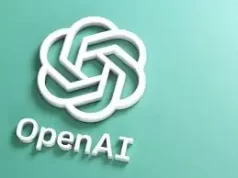Kakao Ventures supports Korean startup, SqueezeBits, making AI models more efficient and cost-effective.


The two-year-old company recently secured a $2 million pre-Series A funding, with investors including Kakao’s venture capital arm, Samsung Next, Posco Venture Capital, and Postech Holdings.”

Join our Telegram Channel for Updates
Running AI models can be exorbitantly costly. A single Nvidia AI chip may carry a price tag exceeding $30,000. Estimated costs suggest that operating ChatGPT consumes $700,000 per day for OpenAI.
With expenses at such levels, only major corporations have the financial resources to develop and sustain AI. However, SqueezeBits, a two-year-old startup in South Korea, asserts its ability to reduce these costs and make this cutting-edge technology more accessible.
To support its mission, SqueezeBits recently secured backing from one of South Korea’s premier internet companies.
In January, SqueezeBits successfully raised 2.5 billion won (almost $2 million) in pre-Series A funding. Although the Seoul-based startup did not disclose its valuation, an insider revealed that the funding round values SqueezeBits at around $15 million.
Notable investors in this round include Kakao Ventures, the venture capital division of billionaire Kim Beom-su’s Kakao, one of South Korea’s top two internet companies.
“We assess not only how companies will utilize AI but also how AI can be democratized and spread to generate more AI applications,” explains Justin Shin, senior associate at Kakao Ventures, in a video interview.
Kakao Ventures is also an early supporter of South Korea’s Rebellions, a company working on more affordable AI chips (approximately half the price of Nvidia’s H100 chips), which recently secured $124 million at a $650 million valuation, making it the best-funded AI chip startup in the country.
Additional contributors to the funding round include Samsung Electronics’ Samsung Next, Posco Venture Capital (the venture capital arm of South Korean steel giant Posco), and Postech Holdings, an accelerator affiliated with Pohang University of Science and Technology (Postech), one of South Korea’s leading technology universities.
SqueezeBits had previously raised 1 billion won in seed funding in 2022 from D2 Startup Factory, backed by South Korean billionaire Lee Hae-jin’s Naver, another major South Korean internet company alongside Kakao, and Postech Holdings. In total, the startup has amassed 3.5 billion won in venture funding.
“For many AI applications, the goal is to minimize costs and maximize performance with AI models,” notes Shin. “Cost is the biggest issue. You need a lot of money to build scalable AI models and then translate that to a working product. That takes a lot of money.”
SqueezeBits claims to achieve cost reduction through enhanced efficiency. Hyungjun Kim, co-founder and CEO of SqueezeBits, elaborates in a separate video interview, “AI models are very overparameterized.
Many companies are not fully optimizing the model and using it.” The number of parameters is a critical metric for an AI model’s size, typically correlating with performance. For instance, OpenAI’s GPT-3 language model boasts 175 billion parameters, and its successor GPT-4, powering the latest version of ChatGPT, reportedly features 1.7 trillion parameters.
“There exist some useless parameters and data in the models. We are getting rid of those kinds of useless or less important data in the model or the computation process so that we can reduce the computation cost and memory usage,” explains the 29-year-old Kim, who holds a doctorate in electrical engineering and computer science from Postech. “That leads to cheaper and faster AI inference.”
Kim states that SqueezeBits can accelerate a model three to five times and reduce its memory usage by a factor of four. Last month, the startup introduced a software-as-a-service toolkit to assist companies in optimizing open-source AI models or even their large language models for cloud services.
“AI models are very overparameterized. Many companies are not fully optimizing the model and using it.”
While SqueezeBits is not the sole company focusing on optimizing AI models, competitors in this space include OmniML, founded in San Jose in 2021, and Xnor.ai, based in Seattle, which spun off from the Allen Institute for AI in 2017.
OmniML, acquired by Nvidia in February, counts GGV Capital, Qualcomm Ventures, and IMO Ventures among its investors. Xnor.ai, backed by Madrona Venture Group and Nokia-funded NGP Capital, was acquired by Apple in 2020 for approximately $200 million.
Other independent startups involved in this domain include Deci in Israel, supported by Insight Partners and Square Peg Capital; and Neural Magic in Massachusetts, backed by Andreessen Horowitz and NEA. SqueezeBits’ domestic competitors feature Nota, which secured a $14.7 million Series B in 2021, with investors including Stonebridge Ventures and Company K Partners.











